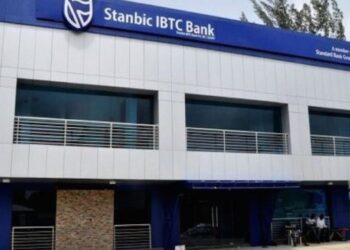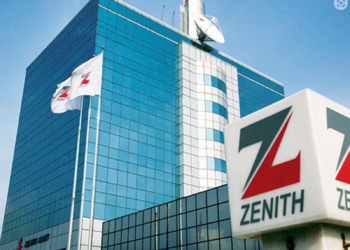Nigerian banks did well to keep costs low in 2019, according to information gleaned from some of their financial statements that have been released so far. The Regional Head of Equity Research at Standard Bank Group, Muyiwa Oni, made this observation when he recently joined CNBC Africa’s Esther Awoniyi to talk about the banks’ performances last year.
Focusing on Zenith Bank Plc, which reported a profit after tax of N208.8 billion last year, Oni stated that the tier-1 bank’s performance was better than expected. He, however, noted that it was somewhat surprising to see such a significant material reduction in the bank’s net interest income, which decreased by 9.7% to N267 billion, down from N295.6 billion.
Oni went ahead to explain that perhaps the surprise came from the fact that the impacts of the LDR yield on asset were not factored in during their initial financial modelling of the bank.
Do note that Zenith Bank’s yield on assets dropped considerably during the year under review. And this was caused by volatility in the interest rate environment, according to Oni. He said:
“Zenith Bank’s numbers were better than expected. I think we were looking at a 4% earnings increase, but the number came out at 8%. Suppose we didn’t really factor…should I say we didn’t expect such material reduction in interest income. So, I suppose in our modelling, we, at the time, hadn’t modelled in as much the impact of the LDR yield on the asset.”
[READ MORE: Dangote Cement retains BUY status despite weak revenue)
Meanwhile, Oni observed that it was interesting to see the increase in Zenith Bank’s non-interest income, which was driven mainly by e-banking fees. There was also an increase in trading income, which Oni noted was influenced by the drop in yields that forced the bank to restrategise and come up with an alternative way of making money.
Commenting further on Zenith Bank’s performance, Oni stated that it was pleasantly surprising to see gross loan increase by about 22%. He said this is positive because it helped to push up the bank’s loan to deposit ratio over 68%. Of course, this can mainly be attributed to pressure by the Central Bank of Nigeria which had recently mandated banks to lend to the real sector of the economy.
Recall that virtually all the banks that have released results for FY 2019 reported an increase in profit after tax. FBN Holdings Plc grew its profit after tax by 3.93%, just as Stanbic IBTC Holdings grew its own profit after tax by 0.8%. Fidelity Bank’s profit after tax increased by 28.5%, just as First City Monument Bank grew its own PAT by 18.4%.
You may watch the full interview by following this link.






















